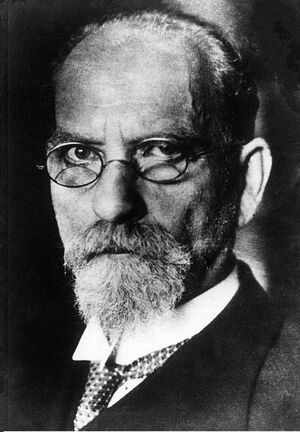Edmund Husserl (nonfiction)
Edmund Gustav Albrecht Husserl (/ˈhʊsərl/; German: [ˈhʊsɐl]; 8 April 1859 – 27 April 1938) was a German philosopher who established the school of phenomenology.
In his early work, he elaborated critiques of historicism and of psychologism in logic based on analyses of intentionality.
In his mature work, he sought to develop a systematic foundational science based on the so-called phenomenological reduction.
Arguing that transcendental consciousness sets the limits of all possible knowledge, Husserl re-defined phenomenology as a transcendental-idealist philosophy.
Husserl's thought profoundly influenced the landscape of twentieth-century philosophy, and he remains a notable figure in contemporary philosophy and beyond.
Husserl studied mathematics under Karl Weierstrass and Leo Königsberger, and philosophy under Franz Brentano and Carl Stumpf.
He taught philosophy as a Privatdozent at Halle from 1887, then as professor, first at Göttingen from 1901, then at Freiburg from 1916 until he retired in 1928, after which he remained highly productive. Following an illness, he died at Freiburg in 1938.
In the News
Fiction cross-reference
Nonfiction cross-reference
External links:
- Edmund Husserl @ Wikipedia
